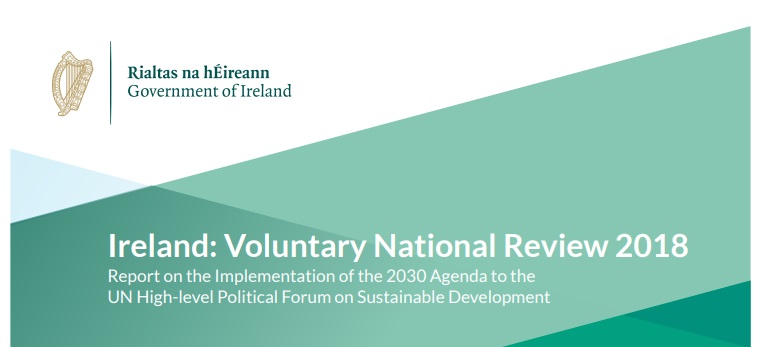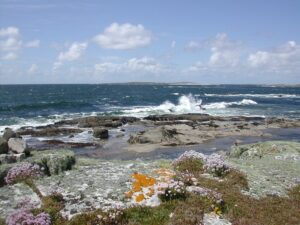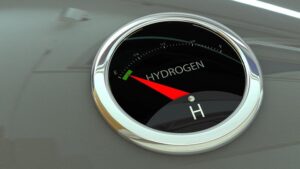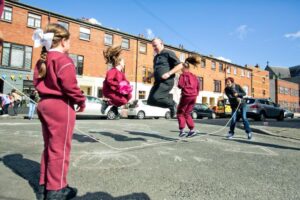Globalisation, “whole of society” partnerships and the UN’s Sustainable Development Goals with Professor Patrick Paul Walsh, School of Politics and International Relations.
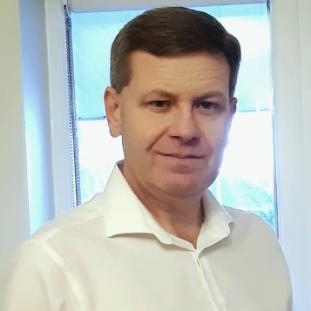
Professor Patrick Paul Walsh
UCD School of Politics & International Relations
UCD Profile
UCD Centre for Sustainable Development Studies
Q: You’re a Senior Adviser to the UN’s think tank Sustainable Development Solutions Network (SDSN) and were involved, as part of the Major Group for Science and Technology, in the Inter-Governmental Negotiations of UN Agenda 2030 for Sustainable Development (SDGs). How did that interest and involvement come about?
A: SDSN was set up by Professor Jeffrey Sachs in 2012 as an outcome of RIO+20 to support UN Secretary General Ban Ki Moons’ work plans during the post 2015 planning period. I worked with Sachs, UN Special Advisor to the General Secretary, as part of SDSN from its foundation in 2012.
Jeff and I both worked on transition economics in Eastern Europe after the fall of the Berlin Wall. I got involved working with the Polish government to setup a new social security system, in the wake of ongoing layoffs from State Owned Enterprises. Jeff was focused on macro stabilisation of the economy. In 2001 he moved away from debt relief and transition in Eastern Europe and started to focus more on ending poverty. After my work on Poland I started working on similar issues of social protection in Thailand and moved into Development Economics as well. Eventually we joined forces on education and policy projects from 2007 and we have worked closely ever since.
RIO+20 introduced the idea of the four pillars of the sustainable development: society, environment, governance and economy. Crucially it was understood that there needed to be a broad consultative process, a bottom up whole of society approach, in the lead up to what would become the UN 2030 Sustainable Development Agenda. For Jeff it was important that there would be an entity that would have legal, academic and scientific oversight of the whole work programme, and that led to the creation of the Sustainable Development Solutions Network. During the first half of my sabbatical from UCD, I worked with UN SDSN with that remit up to the end of November 2014, as a senior research scholar in the Earth Institute in Columbia University.
The recommendations from the work packages for the post-2015 era were handed to the Inter-Governmental Negotiations of the General Assembly in January 2015 and they were used by Ambassador David Donoghue and Ambassador Macharia Kamau as the background material for the actual negotiations to set the UN’s 2030 Agenda and the SDGs. In the second half of my sabbatical I represented the UN Major Group for Science and Technology in the negotiations of the 2030 Agenda. UN SDSN since September 2015 has become a think tank for the UN on the SDGs.
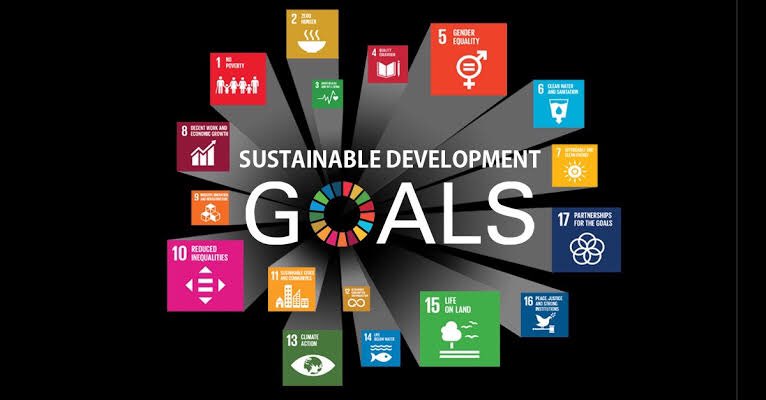
“If people across nations contribute their resources, find synergies and work towards one objective, you’ll get the desired results: peace with a shared prosperity that is socially inclusive and sustainable for the planet.”
– Prof Patrick Paul Walsh
Q: You talk about a whole of society approach to sustainable development and the idea of multi-stakeholder partnerships – can you tell us a little bit about that?
A: Government policies have facilitated the nature of globalisation. Economic growth has defined success for many countries. In Ireland we are highly specialised in our products and services, such as Food and Drink, Pharmaceuticals, Financial and Social Media Services. However this has wreaked havoc on nature through pollution and over-exploitation of natural resources, both at home and through our participation in global value chains. Ireland can be seen as a bit of an epicentre of global environmental destruction given all the multinationals that operate out of Ireland.
The problem is that globally the private, particularly the multinational sector, has become so powerful. It became clear to the UN that in order to address sustainable development and achieve the Agenda 2030, we would need a whole of society approach that brings in the private sector, the government, the community and academics together. When people ask, is this agenda about big or small government, the answer is that the agenda needs to align people’s values, preferences and objectives, irrespective if you are in society, a company or government or university.
If people across nations contribute their resources, find synergies and work towards one objective, you’ll get the desired results: peace with a shared prosperity that is socially inclusive and sustainable for the planet. The role of the governments can be to facilitate all people across different nations to actually convene and work together. It’s a different way of looking at the role of government. The dream is a whole of global society approach informed by science and facilitated by governments, inducing a new wave of multilateralism for the 21st Century.
Q: Have you seen that approach in the response to COVID-19?
A: Yes. The private and public sector are working together to source PPE, the community is working together for social isolation. The big question is, could this whole of society approach be mimicked for climate change? The problem is that one nation can’t do it alone. It has to be a coalition, working with multinationals and global society. This is a hard ask.
We need a big transformation in the governance of NGO’s, government bodies, universities and corporates. Every entity needs to look at the composition of their board. Is there anyone that provides check and balances for society and the environment? What are the key sustainability objectives defined in the memorandums or statutes of foundation of an entity? Are you going to do sustainable development planning and reporting? Are you going to be interoperable on this issue with governments, the academy, corporates and civil society on sustainable development? Everyone have to be very serious about achieving a common objective, like carbon neutrality.
It’s not about been in the private or public sphere, it is about having a common objective and working in partnership towards that. COVID 19 does that for people inside nations but it is turning people against each other across nations. This is not good news for those who want to protect the global environmental commons. We need a global whole of society focus – underpinned by science, government led – on climate change and habitat loss before we let it go too far down a road that we can’t pull back from.
Q: How would you evaluate Ireland’s performance in the SDGs?
A: Ireland is a very young country, compared to some other nations. Yet we were very quick to establish an international diplomatic presence. Noel Dorr, for instance, was chair of the Security Council during the Cuban Crisis, when he was ambassador to the UN. This was a very high profile for a young country. Ireland co-facilitated the negotiation of the UN 2030 Agenda, led by David Donoghue. These global leadership roles come with responsibilities. You need to be able to show that you’re delivering the agenda at home as well. We delivered a sustained peace on the Island of Ireland but Sustainable Development is a big challenge for Ireland.
In terms of actual performance, there’s no doubt there has been an effort to perform well. We have the SDG implementation plan; we delivered a Voluntary National Review to the UN in 2018; we have an Irish SDG Stakeholder Forum embedded in a whole of government approach supported by data from the CSO. However in reality there are still gaps in our approach to our policies around society and the environment. In UCD we are producing a set of environmental indicators for the EPA to be used in global reporting and benchmarking Irish policy. We indicate how far from best practice we are in every environmental issue.
There is a lot of work to be done in Ireland to be best in class. We’ve been successful in economic growth but careless on societal issues like child poverty, housing and environmental issues around intensive farming and biodiversity. We are behind the curve, certainly. Our planning and our support of global multilateral and peace initiatives have been quite excellent, but we struggle with social inequalities and environmental issues at home. I feel we need a transformation of the governance systems in Ireland in order to better incorporate societal and environmental issues into the public policy decision-making process. It’s a big job to transform Ireland into a best in class country for sustainable development. Yet, change can come and fast.
“We’ve been successful in economic growth but careless on societal issues like child poverty, housing and environmental issues around intensive farming and biodiversity. We are behind the curve, certainly. Our planning and our support of global multilateral and peace initiatives have been quite excellent, but we struggle with social inequalities and environmental issues at home”.
– Prof Patrick Paul Walsh
Q: What do you see as the role of universities and academics in sustainable development?
A: When I was involved in the negotiations, one thing that I absolutely insisted on was the inclusion of the word academic in the definition of partnership for the SDGs. Some countries were very against the idea that academics would be involved in national, regional or global decision making. I argued for it to be in the document, particularly in paragraph 53. That was the call to action to set up multi-stakeholder partnerships.
I can’t see how one can have science and technology intensive sustainable development without universities. As we see with COVID 19, universities are the place where research for society and the environment is done. We have technologies that help us transition to renewable energies, to sustainable land use, to sustainable transportation systems and so on. Universities train teachers who teach the SDGs and create the professionals to deliver them. Finally, there’s the interface between science and policy. Again, as with COVID 19, when there’s an emergency, academics and the scientists should be to the forefront.
The Science Policy Interface is crucial. How do you get the recommendations of science into government? The sustainable development agenda cannot happen without education, research and policy coming out of the HEIs. The problem is that universities are a microcosm of society and you can see certain places or nodes within UCD that are SDG oriented, and then there are places that are not, but all can be! UCD was ranked 34 in the World it terms of SDG Impact by the Time Higher in 2020. We can on the right track. Our rank on SDG Partnerships was 14 in the World.
We need to integrate science and policy in better ways to enable transformations. Sustainable development needs new ways to apply science into economic, political and legal systems. One of the challenges for this agenda, and in UCD itself, is to have a true blend of science and social science around these existential issues, such as habitats, climate change and ocean health. This is not easy given the historical design of management, structures and finances around narrow disciplines.
Q: You trained as an economist but you’re now in the School of Politics and International Relations, tell us a little bit about working in both disciplines.
A: Without wanting to stylise either subject, when cconomists think of politics, they think of electoral studies; how political cycles will affect fiscal policy; how lobby groups influence decision making in policy. Political Science does shine different perspectives on economic issues. There are a lot of calls for reform of economic systems. For example, Pope Francis will hold a meeting on the moral economy in Assisi in November 2020. This is about how you bring ethics and values into economic decision making using philosophy that goes back to Aristotle and Social Catholic Teaching. Political theorists have always undertaken this kind of research.
Economists do make policy recommendations, but they don’t always try to take it to legislative change. Political scientists think about that process. When I started thinking about the Sustainable Development Goals, trying to embed social and environmental issues into an economic framework, I realised you have to think about reforming institutions to induce policy change. Operating in the UN HLPF makes you think hard about bureaucratic, ministerial and heads of state processes. When you come up with your theories you have to be a little bit more aware about the political pathways to success. A space where Philosophy, Politics and Economics (PPE) intersect changes the scholar into a statesperson, hence the success of PPE degrees around the world.
